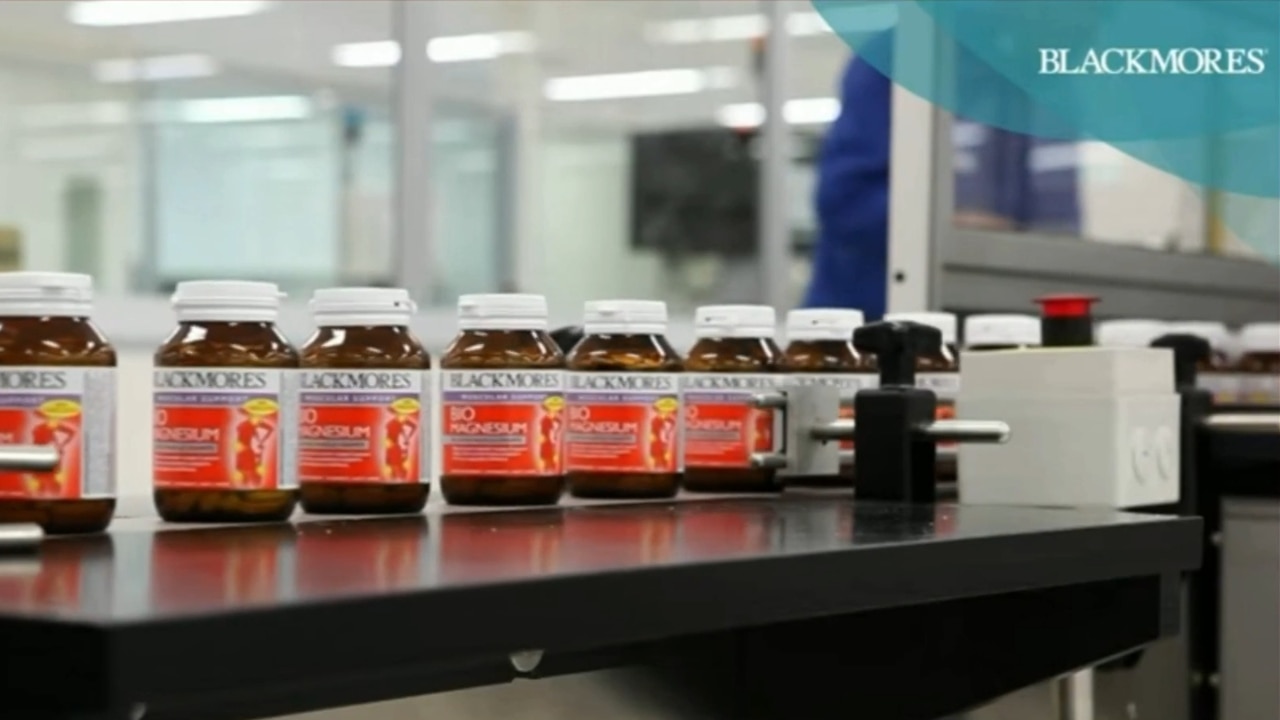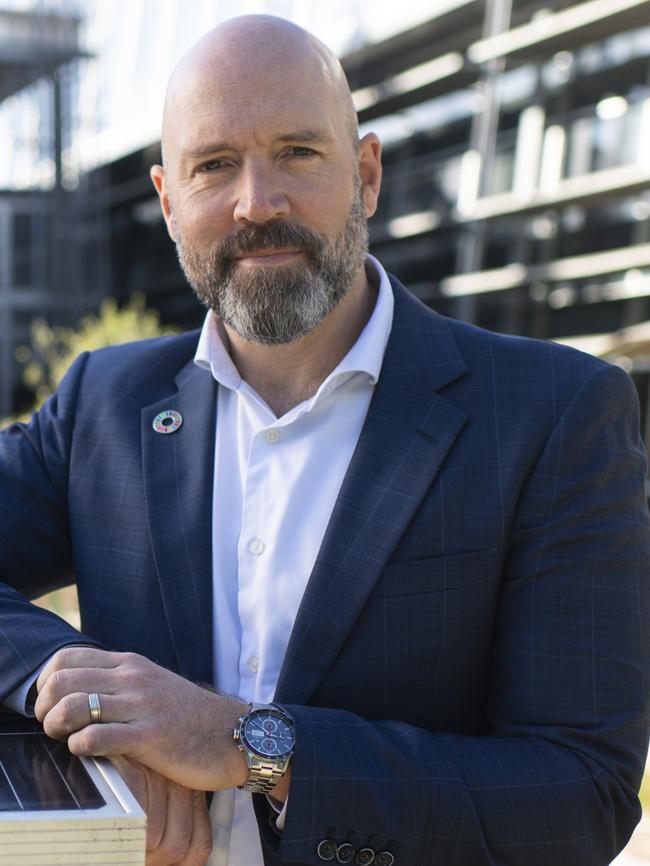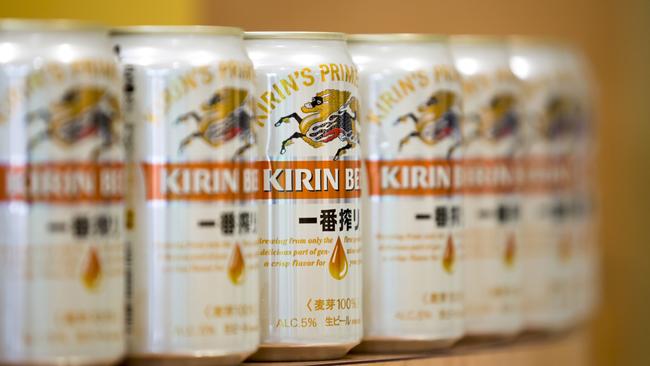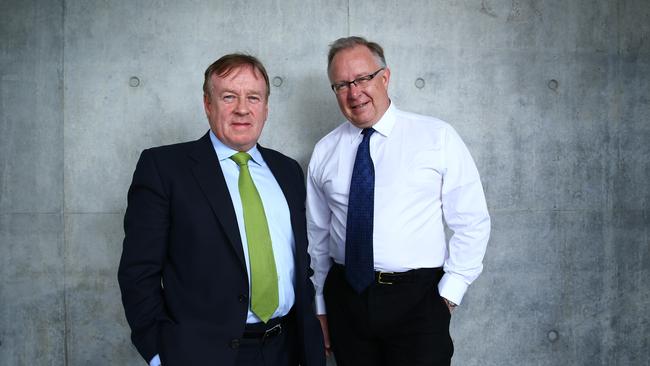
With China’s consumers fast emerging from their Covid slumber, and with a heightened focus on health, Blackmores under the right management was in the prime position to boom again.
However, the rapid rise and just as quick fall of Blackmores over a matter of years shows that success in China is no certainty without investing in distribution.
Seven years ago, Blackmores shares went from nowhere to well past $200 and then back down again in a short space of time, after the vitamins player found it had become too reliant on the diagou trade to get its products into China.
At one point the diagou channel underpinned a third of sales into China, and this evaporated as the Covid pandemic swept the world.
Before the Kirin deal, Blackmores shares were priced at $76.65, and the Japanese giant on Thursday offered $95 a share.
Like the buyouts of Australian companies Toll and Tower before it, Kirin followed the standard Japan Inc corporate playbook of offering a hefty upfront price to wrap up a deal before it’s even started.
This helps to avoid a messy, drawn out and very public battle and reduces the risk of being trumped by a rival. My colleague Bridget Carter revealed three weeks ago Blackmores was in the takeover sights of Japan Inc. After months of talks, Kirin finally secured a fully endorsed deal from the Blackmores board.
The offer was certainly pitched at a full price, given it valued Blackmores at a hefty 23 times trailing earnings compared to the already inflated 17 times Blackmores had been trading at. It also gives a 30.5 per cent premium to the one-month volume-weighted share price in a single deal.
But the price tag comes with the ambition of building Blackmores into a much bigger enterprise, including hitting $1bn in revenue in just a few years, from the $650m in annual sales it delivers now.

As well as negotiating with the board, Kirin was also moving in parallel by securing support from former chairman Marcus Blackmore, whose father Maurice founded the company 90 years ago.
Marcus has an 18 per cent stake – valued in the offer at nearly $340m – but effectively found himself estranged from his own company in recent years following a bitter and public boardroom stoush when he accused it of losing its way. Marcus was looking for an exit and Blackmores wasn’t able to move forward without making peace with its biggest shareholder. Kirin offered a clean pathway for both parties.
For Kirin, which has owned the old Lion Nathan drinks business in Australia since 2007, it’s all about building out a health business into China as well as the fast-growing consumer class into Asia.
As one of the world’s biggest brewers, Kirin is moving to diversify its earnings away from beer sales, where top line growth is slowing. To counter this, it has been building out a health sciences-related products business using ingredients developed through its fermentation research, such as lactic acid bacteria, which it says can boost immunity.
And Blackmores is set to offer Kirin a ready-made platform for its existing range, and this is why it was willing to pay a premium for the already-established vitamins maker.
Specifically, Kirin sees Blackmores vitamins as a good fit for its LC-plasma (lactococcus lactis), Citicoline, and milk-based supplements, which can be added to vitamins, drinks and digestives.

Here it will seek to capitalise on Chinese consumers, who in the post-Covid world have a growing appetite to take vitamins to boost immunity and wellness. As well as a large Chinese distribution footprint, Kirin also has built out distribution in Thailand, Malaysia and Indonesia, which the Japanese company is betting will turbocharge Blackmores’ growth, as well as its own, in those markets.
Currently, health sciences represent 5 per cent of Kirin’s group revenue, but it’s in a hurry and wants to double this to 10 per cent by 2027.
While Lion has been a long-term play, it hasn’t all been smooth sailing for Kirin in Australia. It sold the former National Foods dairy and drinks business to Bega at a deep discount two years ago after a lack of scale, poor synergies with drinks and limited growth options held the business back.
This suggests Kirin will look to keep Blackmores intact and at arms length, while seeking to keep the existing management team, including chief executive Alastair Symington, in place. Symington was on track to cut up to $44m in annualised costs from 2024. Part of this was axing dozens of non-core roles including “wellbeing” staff that had built up over the years. Even so, Blackmores had a battle on its hands, partly from the board distraction of recent years with the company losing market share to Hong Kong-backed rival vitamins play Suisse.
Companies such as life insurer Tower have shown the virtue of Japan Inc’s patient capital and backing of local management. Now called TAL, it was acquired by insurer Dai-ichi in $1.2bn more than a decade ago. Dai-ichi kept the Australian business in place and gave TAL the cash to grow and make further buyouts – most recently acquiring the Suncorp life business for $640m to build out its position. The then manager of TAL, Jim Minto, talked up the freedom to grow TAL with the backing of a long-term investor.
The $3.8bn takeover of paints player Dulux by Japan’s Nippon Paints has seen the Australian business thrive. Nippon has given Dulux the room to grow its export footprint into Asia from an Australian base.
While Japanese companies have a long history of investing in Australia, there are still plenty of traps. The biggest was Japan Post’s sorry tale as it rushed to build out a pan-Asian delivery business based around Toll Holdings.
It’s first mistake was overpaying in the $6.5bn buyout, but it quickly became clear Japan Post didn’t understand the business and lacked management expertise. Its knockout price soon came back to haunt Japan Post, with the Australian business racking up billions of dollars in losses, forcing the postal giant’s hasty retreat back to Tokyo.
‘No regrets’
Judo Bank boss Joseph Healy still gets asked the question why. This was repeated over and over as he and partner David Hornery held dozens of investor meetings around the world looking for seed capital for their specialist small to mid-sized business bank.
Judo Bank later listed on the ASX in 2021, the first bank to do so in decades. And while it has been on the wrong side of the interest rate cycle, the bank today is still valued at $1.4bn. Speaking on the Blenheim Partners’ No Limitations podcast, Healy recalls confronting the “why” question with a London-based investor.
“One particularly firm … said to me after several meetings: ‘Look we have no question about the ability of the team to build a bank, but it’s high risk, and the chances of failure are 90 per cent-ish. So there’s a good chance that you could spend a lot of time, a lot of your money, and this could end up pear shaped’,” Healy said.

Healy was told he was “no spring chicken” and there was other things he could be doing for the next 10 years that would be a lot easier and a lot less riskier.
But as a career banker, including executive roles with ANZ and National Australia Bank, Healy told the podcast both he and Hornery, another former banker, felt strongly about the gap in the market they were targeting. This drive was given the extra push because they were both fuelled by living a life of no regrets.
“We felt very passionate about the opportunity and the need to build a bank that will look after the interests of small to mid-size businesses in Australia,” Healy said.
“So it was driven by a strong sense of passion and a strong sense of purpose … We thought long and hard about this. I had other job offers so I didn’t have to do something like this and put at risk the savings I’d built up over a long career.
“There was a sense that if you don’t do that and if in 10 or 20 years you’re sitting back on that Friday night with a gin and tonic looking back on your career – you’re going to say ‘I missed an opportunity to do something’.
“If you fail, at least you’ve given it a go. You might be divorced and you might be in poverty, but you’ve given it a go.”
Healy and Hornery chart their journey in a new book, Black Belt: A Masterclass for Start-ups and Investors.








It was a now or never moment for Japanese beer giant Kirin to make its $1.85bn move on vitamin house Blackmores.